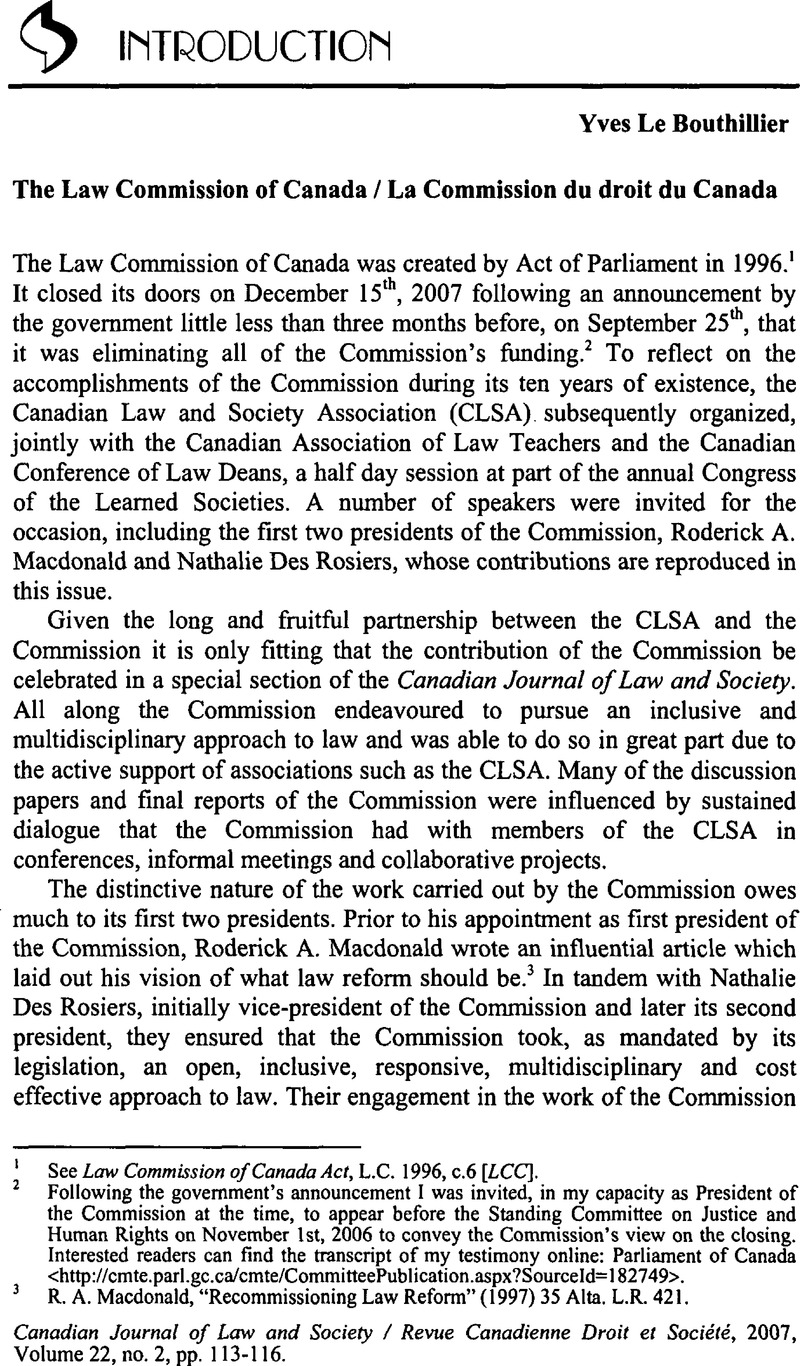No CrossRef data available.
Published online by Cambridge University Press: 18 July 2014

1 See Law Commission of Canada Act, L.C. 1996, c.6 [LCC].
2 Following the government's announcement I was invited, in my capacity as President of the Commission at the time, to appear before the Standing Committee on Justice and Human Rights on November 1st, 2006 to convey the Commission's view on the closing. Interested readers can find the transcript of my testimony online: Parliament of Canada <http://cmte.parl.gc.ca/cmte/CommitteePublication.aspx?SourceId=182749>.
3 Macdonald, R. A., “Recommissioning Law Reform” (1997) 35 Alta. L.R. 421Google Scholar.
4 The Law Reform Commission of Canada was abolished in 1992 with the repeal of its founding Act.
5 Comme l'explique R. Macdonald, dans ce numéro: “These alternative categories enhanced the flexibility of the LCC to cross inherited conceptual boundaries and be more responsive to the way in which Canadians themselves conceive law.”
6 Il importe de rappeler que le modèle adopté en 1996 était le fruit d'un long processus de consultations à l'échelle tant régionale que nationale.
7 Contrairement à la grande majorité des commissions de droit d'autres pays, la Commission avait essentiellement une entière liberté d'initier ses propres projets de recherche et de déterminer comment elle entendait les poursuivre. Le gouvernement pouvait aussi lui demander d'étudier un sujet précis, ce qui est survenu à une occasion au début des travaux de la Commission.
8 À ce sujet, Roderick Macdonald écrit avec raison que : “…many of the criticisms levelled at the Commission during the months immediately preceding and after its announced closure, were not so much criticisms of the manner in which the LCC pursued its legislative mandate, as they were criticisms of the mandate that it was given.” (Infra, dans ce numéro)
9 Pour consulter le site web de la Commission tel qu'il existait le 6 décembre 2006 voir en ligne: Commission de droit du Canada <http://epe.lac-bac.gc.ca/100/206/301/law_commission_of_canada-ef/index.html>.